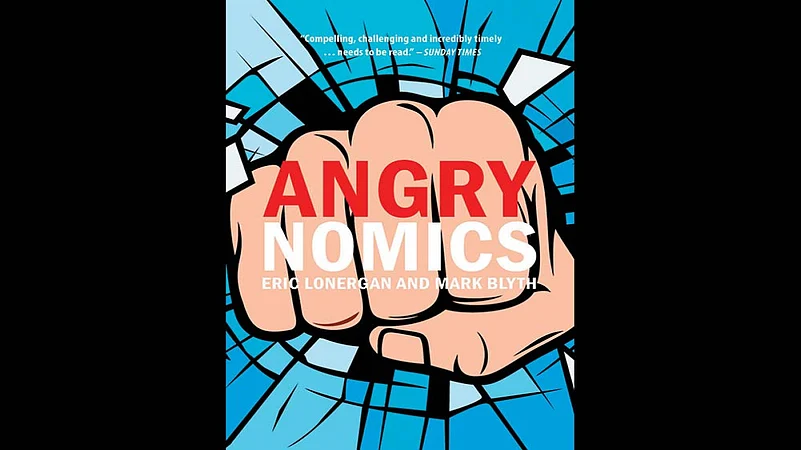In this world that is fast turning emotionless, a serious disconnect between what is assumed to be going around us and what is actually happening within us is intensifying the pressures on life. Anger is the undesired outcome. While personal and public anger manifests itself differently in social and political spheres, there are compelling reasons for it to pepper our lives without disdain. A hedge-fund manager and an economics professor engage in a series of Socratic dialogues to unravel why the vast majority feels uncertain, unhappy and inadvertently angry despite on an upward swing of unstinted capitalist growth. That we all live in an angry world is just one part of reality, the crucial other is to take a deep dive to rid ourselves of this expanding anomaly.
Angrynomics is an emerging social phenomenon borne out of an economy of heightened powerlessness, as faith in the workings of politics and markets is undermined. Brewing anger in society is as much private as public, varying in intensity and manifestation. Eric Lonargan raises his concern on the political motivation of capitalising public anger as neo-nationalism to deflect attention from failings by the leadership--“Nationalism is a political technology that is used instrumentally by societal elites to secure their privileges”. Whether it is Trump in America, Modi in India, or Johnson in the UK.
The dialogical approach acts as a primer on why the world is the way it is today, and what can be done to change it. Perhaps we mistakenly think that democracy is a majority rule. Conversely, majoritarian electoral systems are ruled by a minority which hijacks genuine political debate and deflects the majority from the real issues—rising unemployment, shrinking wages and increasing inequality. Spread over five chapters, the conversations suggest the need for avoiding politically-motivated tribal instincts that obscure our judgement by being manipulated by media and politicians.
Lonergan and Blyth are convinced that at the core of the crises is a system of capitalism that is akin to a repeatedly crashing computer in need of urgent rebooting. Wage stagnation, asset bubbles, excessive bank leverage have already bugged the system. The trouble is that political elites riding the populist bandwagon of nationalism don’t see anything wrong with the system. Can public anger be channelised to bring back deliberative democracy to accept new economic policy ideas?
However, in the interest of making our economics sustainable and our politics functional the authors present some policy proposals—tougher bank regulation, dual interest rates and a national wealth fund (for writing everybody a cheque) are some. These are ambitious proposals to end recessions by sharing our collective capital in building household incomes. However, the chances of their adoption rest on restoring institutions of civil society that give anger a legitimacy towards collective purpose. “Anger can be a positive motivating political and social force”.
More than economic proposals, Angrynomics provides a good lens to understand the current political events in a broader context. By failing to make fundamental changes to a political system that has become a stress generator, private and public anger has been allowed to gain momentum. Lonergan and Blyth contend that unless diffused in right earnest, anger will continue to bubble up ominously. Whether public anger as righteous indignation gets addressed by timely policies or continues to get weaponised by populist politics will determine the future course of society.
In Ellen Hopkins’ words, “Anger is a valid emotion. It is only bad when its takes control and makes you do things you don’t want to do.” The co-discussants argue that only through the lens of moral legitimacy can anger be seen as a positive energy towards collective response for a shared future. It is an acceptable proposition. Angrynomics is a timely call for course correction. With the pandemic having ripped the world apart, nothing could be more compelling than addressing the micro stressors on top of emerging macro challenges.
(The author is an independent writer, researcher and academic)

























